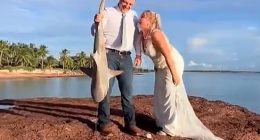A coroner has demanded more answers from ambulance chiefs over mistakes that led to the death of a talented teenage footballer.
Luke Bennett, 17, died after he was hit by 11,000 volts when a metal pole he was playing with touched overhead power lines.
But an inquest heard he could have survived had paramedics not been sent to the wrong location by a call-handler.
Coroner Kate Bisset has now given the North West Ambulance Service 28 days to give more detail about training given to staff to help avoid a repeat of the tragedy.
And she has also asked for more answers from Electricity North West whose overhead power lines at Euxton Villa FC’s ground delivered the shock to Luke and two friends.


Luke Bennett, 17, died after he was hit by 11,000 volts when a metal pole he was playing with touched overhead power lines


An inquest into his death heard he could have survived had paramedics answering a 999 call not been sent to the wrong location by a call-handler
She deferred issuing both organisations with a Regulation 28 requiring more action to be taken to reduce the risk of future deaths until she has more answers.
Ms Bisset described the death of Luke, from Chorley, Lancashire, as ‘an utter, utter tragedy’, telling his distraught parents: ‘There are no words here.’
His father, former professional footballer Tom Bennett, told the inquest he dropped Luke off around 2:30pm on March 6, 2021, to play football with his friends.
Tom, who played for Wolves, Stockport and Walsall during his career, told the inquest: ‘His personality was quite infectious. He was the life and soul. It was amazing how he could do something without any real practice. He just seemed to excel at pretty much all sports.’
At around 6pm, Luke and friends Lewis Geszke and Ben Wilcock picked up a heavy metal pole from behind a goal at the Euxton ground and stood it up on its end. The inquest heard that the pole, which was used to weigh down the back of the net, was nearly 24-feet long. The power lines running over the back of the pitch were all less than 22-feet high.
Other youths playing on the same pitch heard a crackle and saw flames and at the top of the pole and all three boys collapsed.
But it took paramedics more than 20 minutes to reach the scene to administer first aid after being wrongly sent to Runshaw College almost two miles away.
By that time, Luke had lost the chance of being revived, a cardiac specialist told the inquest.


Read Related Also: WhatsApp users joke the new Chat Lock feature will be perfect for people having affairs
The death of Luke Bennett, 17, was described by the coroner as an ‘utter, utter tragedy’
The inquest heard a call-handler twice misheard the location from one of the youths on the 999 call.
Then they failed to use a Find My Phone button on their system to locate the real address.
A defibrillator at the gate of the club did not flash up on the controller’s screen because of the incorrect location.
And the handler also ordered the boys not to touch Luke for fear of being electrocuted themselves, therefore delaying any first aid they could have given.
Luke’s father broke down in tears as the coroner delivered her conclusion.
She told the court: ‘I am satisfied that if the ambulance service had attended the correct address, it’s more likely than not that Luke would have survived.’
Euxton Villa’s chairman Graham Keyte told the inquest the metal pole, from an old perimeter fence, was used to anchor down the back of the goal net instead of pegs.
It was heavy and needed two people to carry it, he said.
He said groups of youths used to access the club when there were no games and play on the pitches and they were ‘tolerated’ by some members of the committee.
A member of the committee there that day had told the boys to ‘finish their game and then leave’.
Of the electric cables above the ground, Mr Keyte said: ‘Obviously you know they are there, but you just forget about them because they don’t interfere with the games.’
The club had even reduced the length of one pitch to make sure the lines didn’t interfere and obstruct the game, the inquest heard.
Asked if anyone at the club had thought the pole was a hazard, Mr Keyte answered: ‘No.’
He added: ‘I just never foresaw the pole being used in any way like that. I never envisaged someone picking it up.
‘If I had, that pole would never have been there. Electricity North West never raised that the pole was an issue on the site.’
The club has around 600 active players and about 90 per cent of those were children.
They also have around 70 volunteers. No one has ever been concerned about the safety of the pole, he told the hearing at Preston Coroners Court.




